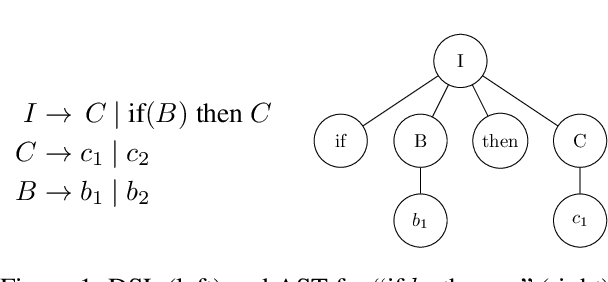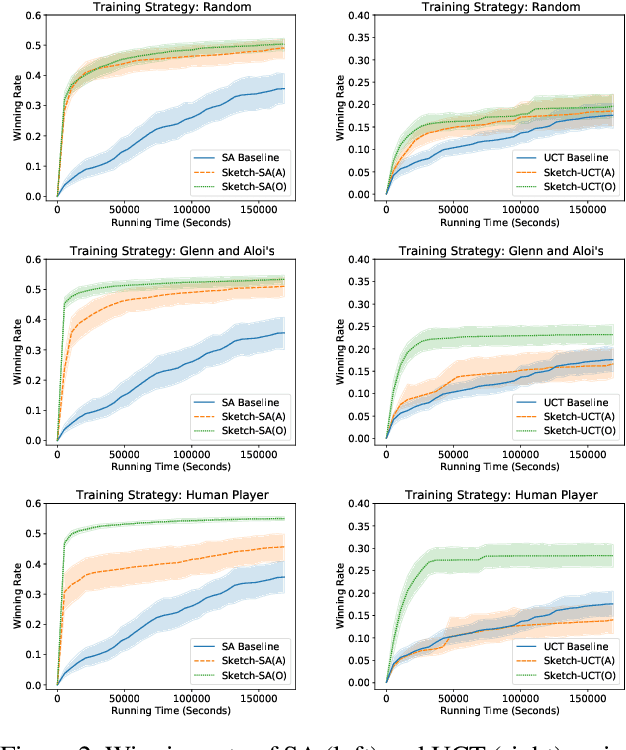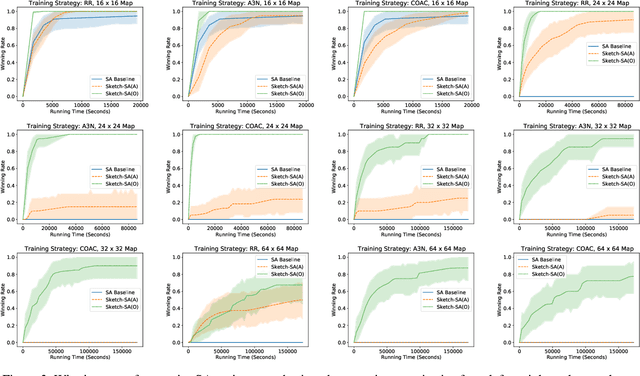What can we Learn Even From the Weakest? Learning Sketches for Programmatic Strategies
Paper and Code
Mar 22, 2022



In this paper we show that behavioral cloning can be used to learn effective sketches of programmatic strategies. We show that even the sketches learned by cloning the behavior of weak players can help the synthesis of programmatic strategies. This is because even weak players can provide helpful information, e.g., that a player must choose an action in their turn of the game. If behavioral cloning is not employed, the synthesizer needs to learn even the most basic information by playing the game, which can be computationally expensive. We demonstrate empirically the advantages of our sketch-learning approach with simulated annealing and UCT synthesizers. We evaluate our synthesizers in the games of Can't Stop and MicroRTS. The sketch-based synthesizers are able to learn stronger programmatic strategies than their original counterparts. Our synthesizers generate strategies of Can't Stop that defeat a traditional programmatic strategy for the game. They also synthesize strategies that defeat the best performing method from the latest MicroRTS competition.
 Add to Chrome
Add to Chrome Add to Firefox
Add to Firefox Add to Edge
Add to Edge